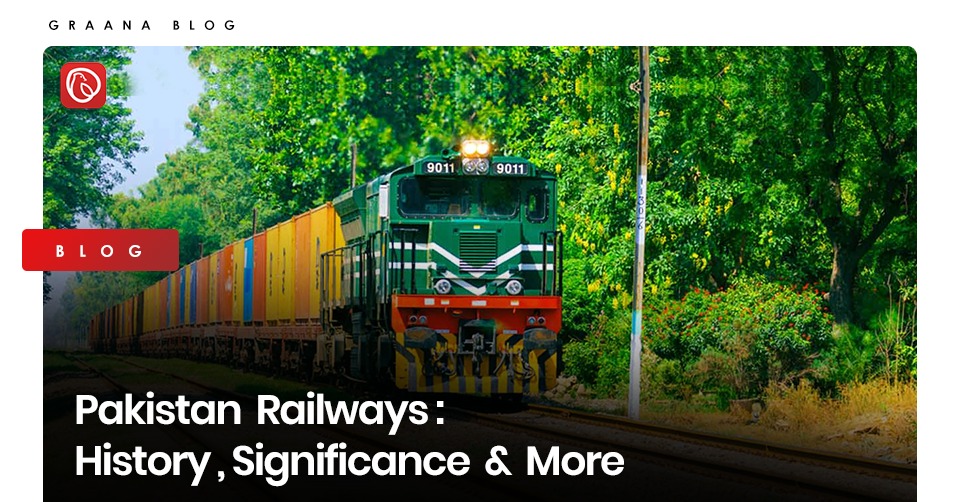Pakistan Railways serves as a vital means of transportation in the most remote regions of the nation, whether it is for business, tourism, or education purposes.
Graana.com has compiled a guide on Pakistan Railways, which helps you understand its main lines, routes, and fare rates.
An Overview of Pak Railway
| Aspect of Pak Railway | Information about Pak Railway |
|---|---|
| Organization Name | Pakistan Railways |
| Established | 1861 (Initially as Scinde Railway) |
| Headquarters | Lahore, Punjab, Pakistan |
| Network Length | Approximately 8,163 kilometers |
| Divisional Offices | Multiple divisions across the country |
| Key Services | Passenger and freight transportation |
| Main Lines | Main Line 1 (ML-1), Main Line 2 (ML-2), Main Line 3 (ML-3) |
| Recent Projects | ML-1 Upgradation Project, Green Line Express Train, Orange Line Metro Train (Part of Lahore Metro) |
| Technological Role | Modernization initiatives, digitization efforts |
| Official Website | Pakistan Railways Official Website |
History of Pakistan Railways
In 1858, Sir Henry Edward Frere (former governor of Bombay) started the survey for the railroad line. A line from Karachi to Kotri, steam navigation up Indus/Chenab to Multan, and another railway from there to Lahore and beyond were all proposed for construction.
The first railway line, spanning 105 miles from Karachi to Kotri, was inaugurated for public use on May 13th, 1861. On 16 June 1889, a line connecting Karachi and Keamari was inaugurated. The railway between Keamari and Kotri was extended in 1897.
Alexander’s route over the Hindu Kush to the sea runs parallel to the railway line going from Peshawar to Karachi. The last quarter of the 19th century and the first decade of the 20th century saw the construction of various portions of the main line connecting Peshawar with Lahore and Multan, as well as the branch lines.
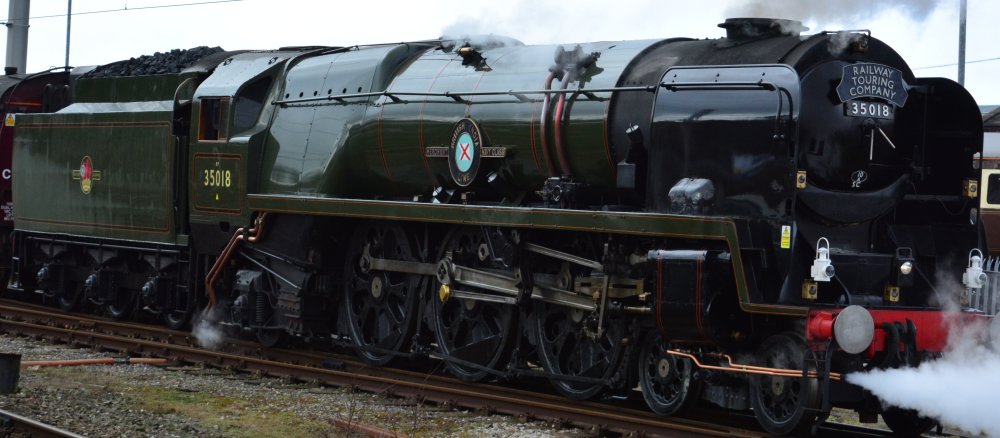
The four separate companies, Scinde Railways, Indian Flotilla Company, Punjab Railways, and Delhi Railways, later merged to form Scinde, Punjab & Delhi Railways Company. The Secretary of State for India bought the company in 1885 and, in January 1886, it was given the name North Western State Railways, which was later changed to North Western Railways.
The 1847 route miles of the North Western Railway were given to India at the time of partition, leaving the remaining 5048 route miles in Pakistan.
The Mardan and Charsadda sections of the railway line were added in 1954, and the 2′-6’ wide Jacobabad-Kashmore route was converted to a broad gauge in 1956. Between 1969 and 1973, the Kot Adu-Kashmore railway was built, offering a different route from Karachi to the upcountry.
Railway Infrastructure of Pakistan
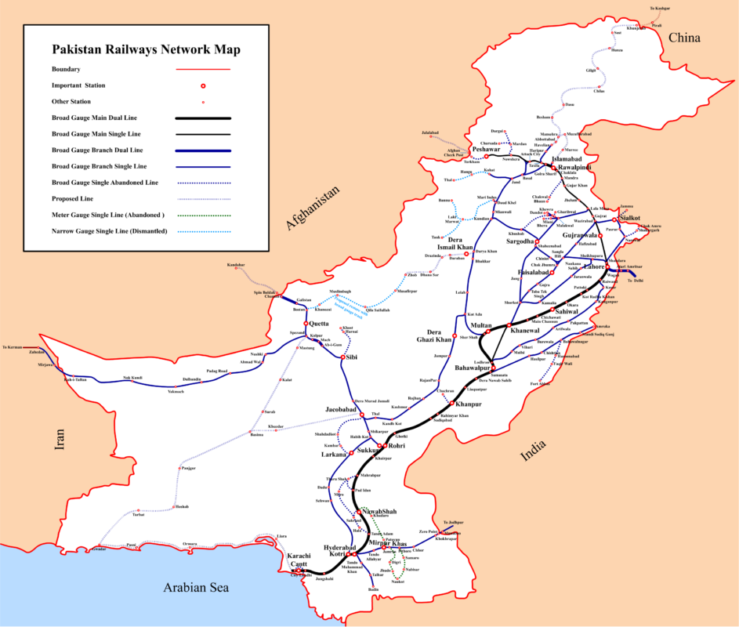
11,881 kilometres (7,383 miles) of train tracks make up Pakistan’s railway system. However, about 80% of the rails are a part of 80 to 90-year-old historical buildings.
According to recent figures, the top speed on the majority of these Pakistani railway lines is 120 km/h (75 mph). The improved parts of the Karachi to Peshawar railway line, however, allow for speeds of up to 130 kph (81 mph).
Additionally, work is being done in Pakistan as part of the CPEC Projects to modernise the majority of the major lines to enable quicker train speeds of up to 160 kph (99 mph) and lessen the amount of congestion experienced by Pakistani railway traffic.
You may find information about Pakistan’s main railway lines in the table below:
Main Railway Lines in Pakistan
| Line | Description | Length |
| Main Line 1 (ML-1) | Karachi–Peshawar Line | 1,687 kilometres |
| Main Line 2 (ML-2) | Kotri–Attock Line | 1,519 kilometres |
| Main Line 3 (ML-3) | Rohri–Chaman Line | 523 kilometres |
| Main Line 4 (ML-4) | Quetta–Taftan Line | 523 kilometres |
| Main Line 5 (ML-5) | Taxila–Khunjerab Line | 682 kilometres |
Pakistan’s railway system includes main lines and branch lines. Currently, there are only 5 main lines and about 20 branch lines that connect the various cities in the provinces and their districts.
The CPEC Projects in Pakistan include upgrading the mainline that connects Peshawar and Karachi. It is a six-year project with an estimated $6.3 billion price tag. The Pakistani Ministry of Railway has suggested certain new rail routes to connect Gwadar Port to Central Asia.
These railway lines’ names are listed as follows:
- Karachi–Gwadar Railway Line (Makran Railway)
- Gwadar–Mastung Branch Line
- Bostan–Zhob–Dera Ismail Khan Branch Line
- Basima–Jacobabad Branch Line
- Islamabad–Muzaffarabad Branch Line
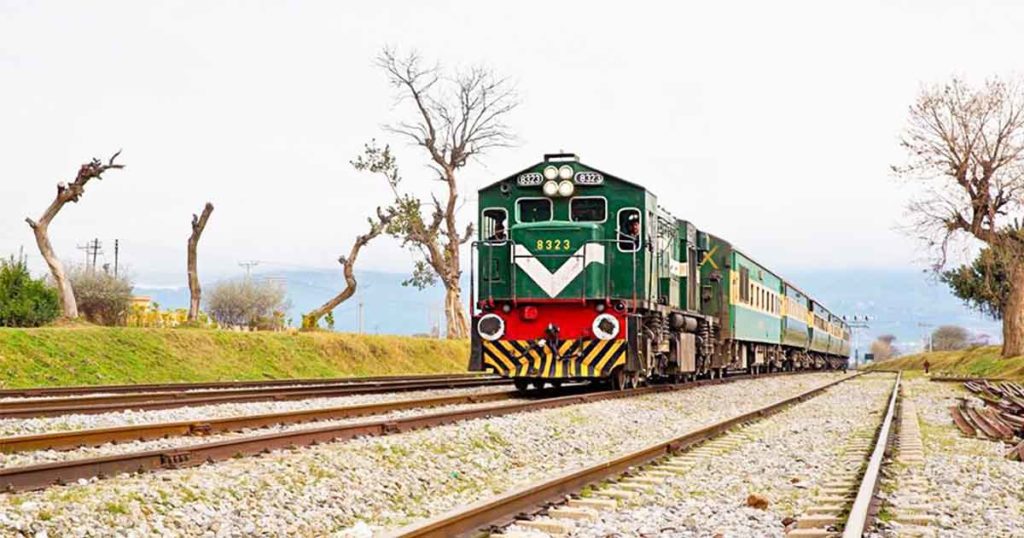
Digitisation of Pakistan Railways
Following Pakistan’s efforts to advance e-governance, the nation’s railway system has also been digitised.
Pakistan’s Ministry of Railways and Pakistan Information Technology Board (PITB) have jointly inaugurated the nation’s railway booking and timetable website. For your reference, a screenshot of this e-portal has been attached.
To manage your schedule and make preparations accordingly, you may easily register on this portal using your mobile number and other details. You can then check the availability of trains.
Railway Stations in Pakistan
Several thousand railroad stations connect Pakistan’s extensive rail network. The majority of these train stations house railway junctions. Popular rail hubs can be found in cities like Rawalpindi, Lahore, Karachi, Quetta, Faisalabad, Multan, and Hyderabad.
Given that Karachi is Pakistan’s largest city, three railway stations are located there: City Station, which is close to II Chundrigar Road; Cantt Station, which is close to Clifton; and Drigh Road Station, which is located in Faisal Cantonment.
One of the world’s most advanced circular railway systems was also located here. The Karachi Circular Railway is now being restored by the authorities in order to make it operational once more. Lahore’s train station is also a popular historical site in Lahore that has so far been effectively preserved by the government.
Additionally, the majority of Pakistan’s major railway stations provide a range of facilities, including parking spaces, waiting areas, historical museums, reservation desks with computerised systems, and cafeterias.
Popular Railway Trains
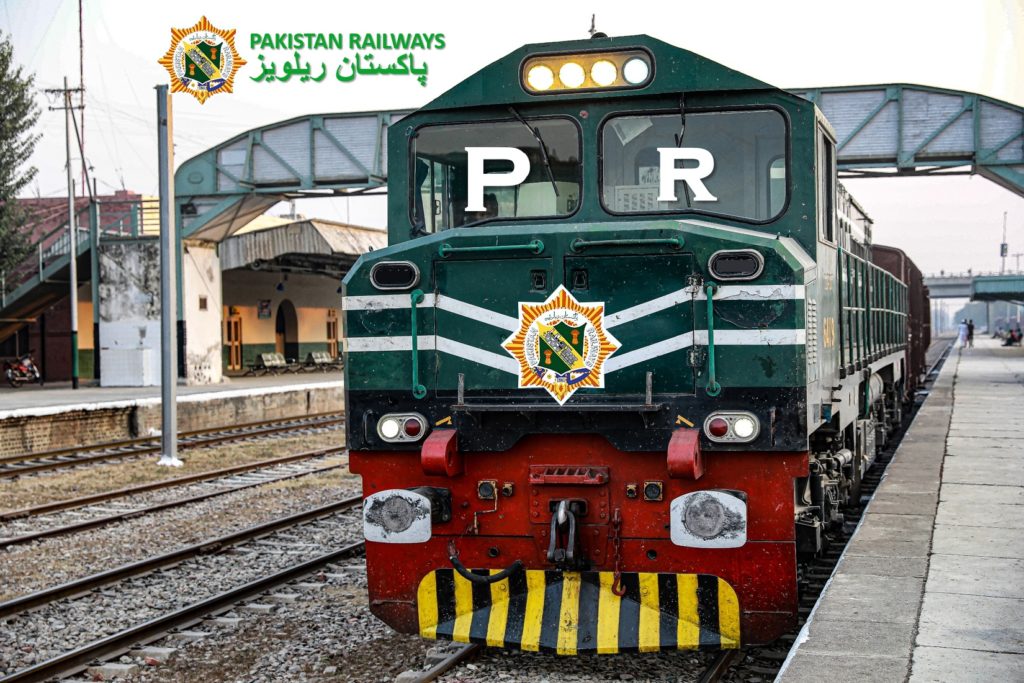
| Popular Trains | Routes |
| Akbar Express | Quetta–Lahore Junction |
| Allama Iqbal Express | Karachi City Station–Sialkot Junction |
| Attock Passenger | Mari Indus–Attock City Junction |
| Awam Express | Karachi City Station–Peshawar Cantonment |
| Babu Passenger | Lahore Junction–Wazirabad Junction |
| Badar Express | Lahore Junction–Faisalabad |
| Badin Express | Hyderabad Junction–Badin |
| Bahauddin Zakaria Express | Karachi City Station–Multan Cantonment |
| Bolan Mail | Karachi City Station–Quetta |
| Chaman Mixed | Quetta–Chaman |
| Chenab Express | Sargodha Junction–LalaMusa Junction |
| Dhabeji Express | Karachi Cantonment Station–Dhabeji |
| Faiz Ahmed Faiz Express | Lahore Junction–Narowal Junction |
| Fareed Express | Karachi City Station–Lahore Junction |
| Faisal Express | Lahore Junction–Faisalabad |
| Faisalabad Express | Multan Cantonment–Faisalabad |
| Ghouri Express | Lahore Junction–Faisalabad |
| GreenLine Express | Karachi Cantonment Station–Islamabad |
| Hazara Express | Karachi City Station–Havelian |
| Islamabad Express | Lahore Junction–Islamabad |
| Jaffar Express | Peshawar–Quetta |
| Jand Passenger | Jand Junction–Attock City Junction |
| Jinnah Express | Karachi Cantonment Station–RawalpindiKarachi Cantonment Station–Lahore Cantonment |
| Karachi Express | Karachi City Station–Lahore Junction |
| Kohat Express | Rawalpindi–Kohat |
| Karakoram Express | Karachi City Station–Lahore Junction |
| Khushhal Khan Khattak Express | Karachi City Station–Peshawar Cantonment |
| Khyber Mail | Karachi Cantonment Station–Peshawar Cantonment |
| Karana Passenger | Lala Musa Junction–Sargodha Junction |
| Lasani Express | Lahore Junction–Sialkot Junction |
| Lala Musa Express | Lala Musa Junction–Sargodha Junction |
| Margalla Express | Lahore Junction–Rawalpindi |
| Marala Passenger | Wazirabad Junction–Narowal Junction |
| Mari Indus Express | Mari Indus–Lahore Junction |
| Mianwali Express | Mari Indus Junction–Lahore Junction |
| Multan Express | Multan Cantonment–Lahore Junction |
| Mehran Express | Karachi City Station–Mirpur Khas |
| Musa Pak Express | Multan Cantonment–Lahore Junction |
| Meher Express | Multan Cantonment–Rawalpindi |
| Mohenjo-Daro Express | Rohri Junction–Kotri Junction |
| Millat Express | Karachi City Station–Malakwal Junction |
| Mixed Passenger | Multan Cantonment–Lahore Junction |
| Narowal Passenger | Narowal Junction–Lahore Junction |
| Niazi Express | Mari Indus–Lahore Junction |
| Pakistan Business Express | Karachi Cantonment Station–Lahore Junction |
| Pakistan Express | Karachi Cantonment–Rawalpindi |
| Rohi Fast Passenger | Khanpur–Sukkur |
| Rehman Baba Express | Peshawar Cantonment–Karachi Cantonment |
| Rawalpindi Express | Lahore–Rawalpindi |
| Shah Hussain Express | Karachi Cantonment Station–Lahore Junction |
| Samjhauta Express | Lahore–Wagah |
| Shalimar Express | Karachi Cantonment–Lahore Junction |
| Subak Kharam Express | Lahore Junction–Rawalpindi |
| Shah Rukn-e-Alam Express | Multan Cantonment–Karachi Cantonment |
| Subak Raftar Express | Lahore Junction–Islamabad |
| Sukkur Express | Karachi City Station–Jacobabad Junction |
| Sindh Express | Karachi Cantonment–Sukkur |
| Sir Syed Express | Karachi Cantonment–Rawalpindi |
| Shah Latif Bhattai Express | Dhabeji–Mirpur Khas |
| Tezgam Express | Karachi Cantonment–Rawalpindi |
| Thal Express | Multan Cantonment–Rawalpindi |
| Thar Express | Karachi Cantonment Station–Zero Point |
| Waris Shah Fast | Lahore Junction–Shorkot Cantonment Junction |
Freight Transportation Services by Pakistan Railways
Pakistan’s strategic location is one of the main reasons why it is an activity hub under the auspices of the Belt and Road Initiative by the Chinese government. In Pakistan, several significant dry ports, which will be connected by railway lines, are now being built throughout the nation.
According to the report of the 2021–22 fiscal year, the current revenue of the railway industry in Pakistan has increased to PKR 58 billion, which is quite good in terms of the country’s overall economic progress. Currently, the railway accounts for roughly 73 per cent of freight transportation in the nation.
The two main Pakistani ports, Port Qasim and Karachi Port are also connected to the country’s freight railway transit system. It is used to transport agricultural, industrial, and imported goods, including sugar, wheat, coal, fertiliser, rock phosphate, vehicles, electronics, and a variety of lubricants.
Modernisation Project of Pakistan Railways
Pakistan Railways and a Chinese business has signed a contract for $140 million (or roughly PKR 31 billion) for the upgradation project of Pakistan Railway coaches. According to that agreement, the Chinese corporation will give Pakistan 230 cutting-edge passenger coaches.
46 coaches will be purchased as completely built units (CBUs). The Pakistan Railways would produce the remaining items locally with the assistance of its engineers and technical employees, under the supervision of specialists from the Chinese enterprise. The first batch of contemporary coaches was only recently delivered to Pakistan Railways.
Famous Railways Stations in Pakistan
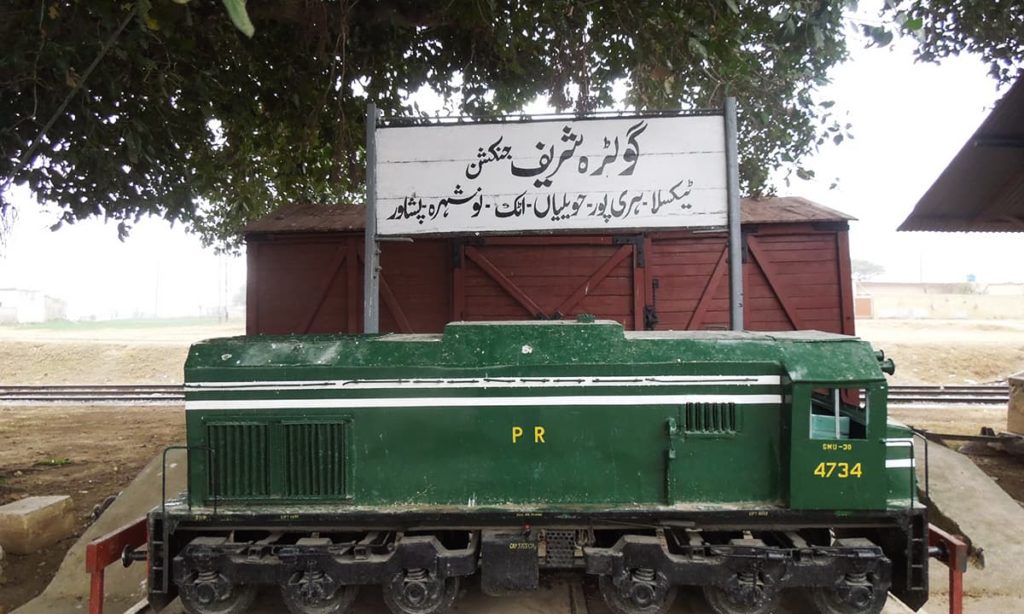
The following are some of the most famous railway stations in Pakistan:
- Lahore Railway Station
- Rawalpindi Railway Station
- Railway Station of Sukkur
- Railway Station of Attock Khurd
- Quetta Railway Station
- Golra Sharif Railway Station
- Faisalabad Railway Station
- Bahawalpur Railway Station
- Mirpur Khas Railway Station
- Gujranwala Railway Station
- Rahim Yar Khan Railway Station
- Gujrat Railway Station
- Hyderabad Railway Station
- Okara Railway Station
- Sahiwal Railway Station
- Khushab Railway Station
- Jauharabad Railway Station
- Quaidabad Railway Station
- Shikarpur Railway Station
- Karachi Railway Station
Pakistan Railway Online Booking
Pakistan Railway offers an online booking system to make train travel more convenient for passengers. This online booking system enables passengers to book train tickets from the comfort of their homes or offices without the need to visit a railway station.
Passengers can easily access the Pakistan Railway website and select their preferred train, route, and class of travel. The online booking system allows passengers to make secure payments through various payment options, including credit cards, debit cards, and online banking.
This feature has greatly facilitated the process of ticket booking and has made train travel in Pakistan more accessible and hassle-free. With the availability of this online booking system, passengers can avoid long queues and save time and energy while planning their travel on Pakistan Railway.
FAQs
What are the services provided by Pakistan Railway?
Pakistan Railway provides a wide range of services, including passenger transportation, freight transportation, parcel services, and special trains for holidays and events.
What are the different classes of travel offered by Pakistan Railway?
Pakistan Railway offers various classes of travel, including Economy, Business, and AC Sleeper, as well as Luxury and Royal classes on certain trains.
How can I book a train ticket on Pakistan Railway?
Passengers can book train tickets on Pakistan Railway through various channels, including online booking, ticket counters at railway stations, and authorized travel agents.
What is the punctuality rate of Pakistan Railway?
Pakistan Railway has faced criticism in the past for poor punctuality rates, but the company has been working to improve its performance in recent years.
What are the safety measures taken by Pakistan Railway?
Pakistan Railway takes various safety measures to ensure the safety of its passengers, including regular maintenance of trains and tracks, installation of safety equipment, and training of staff on safety procedures.
What is the future of Pakistan Railway?
Pakistan Railway is currently undergoing a massive modernization and expansion program with the aim of improving its services and increasing its capacity to meet the growing demand for rail transportation in Pakistan.
Who is the owner of Pakistan Railway?
Pakistan Railway is owned and operated by the Pakistan Railways, which is a state-owned enterprise under the Ministry of Railways of the Government of Pakistan.
Which is the biggest train of Pakistan?
The biggest train of Pakistan is the Tezgam Express, which is a passenger train that operates between Karachi and Rawalpindi. It is one of the longest and heaviest trains in Pakistan, with a total length of around 750 meters and a weight of approximately 1,700 tonnes.
Which is the fastest train in Pakistan?
The fastest train in Pakistan is the Green Line Express, which is a passenger train that operates between Karachi and Islamabad. It has a maximum speed of 160 km/h (99 mph) and is equipped with modern amenities such as air-conditioned cabins, onboard Wi-Fi, and entertainment systems.
Which is the best Pakistan Railway?
It is subjective to determine which is the best Pakistan Railway as it depends on the preferences of the passengers. However, the department has been working on improving its services and facilities in recent years, with the aim of providing better experiences for passengers.
The newly introduced trains such as the Green Line Express and the modernization of the existing ones have greatly improved the standard of railway travel in Pakistan.
Read More
